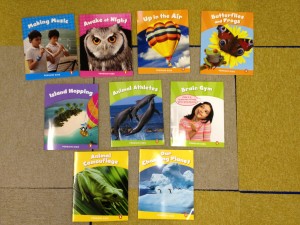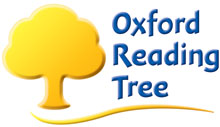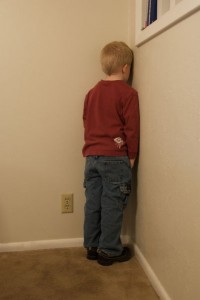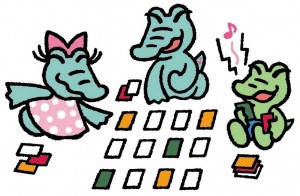curriculum Dolphin Readers EFL eikaiwa ES expectations extensive reading graded readers kids language courses materials oxford owl oxford phonics world Oxford Reading Tree phonics presentations school management video
by sendaiben
leave a comment
VIDEO Oxford Teaching Workshop Series 2013: Creating a Reading Program for Young Learners
This year I was very fortunate to be invited to be part of the Oxford Teaching Workshop Series, presenting in four cities in Japan this spring. This video is from the Okayama session:
Please tell me about your reading program in the comments.
curriculum EFL eikaiwa extensive reading graded readers kids language courses Language learning materials Penguin Kids Readers readers reviews young learners: EFL graded readers Japan Penguin Kids Readers review teaching English
by sendaiben
2 comments
New Penguin Kids Titles
I first reviewed this series here.
Just to recap, this is a fantastic resource for young beginners who are just getting started with graded readers. The books are extremely attractive and have interesting content. The levels start very low at level 1 (200 headwords) and only go up in jumps of 200 from there up to level 6 (1200 headwords).
I received the new titles for this year last week. Unlike last year’s releases, which were all based on Disney titles, this year’s books are a mixture of new Disney material alongside non-fiction content.
I really like the non-fiction books. They have big, attractive photographs and are interesting. I tried them out with some students yesterday (just put them on the desk as they came into class and let them read before we started) and I had difficulty getting them to put the books down so we could start the class! Always a good sign.
If you have a reading library for children or teenagers this series is well worth a look, especially now that it has its full 12 books per level.
curriculum EFL eikaiwa ES expectations extensive reading kids language courses Language learning materials oxford owl Oxford Reading Tree presentations teaching
by sendaiben
leave a comment
Oxfort Teaching Workshop Series Fukuoka Feb 3 2013
I’ll be presenting in Fukuoka again this Sunday, at the Oxford Teaching Workshop Series 2013.
I’m really excited about the topic: designing reading programs for young learners.
I’ll be on at 10:30 in the Tenjin Crystal Building. Please see the flyer for more details.
Be Nice curriculum EFL eikaiwa ES expectations junior high school kids language courses Language learning school management Teach Like a Champion teaching
by sendaiben
2 comments
Zero tolerance
I’m normally a fairly laid-back guy, and I am probably a ‘nice’ teacher. I see my role as being a coach, someone who can provide training, encouragement, and advice to my students so they can learn the skills of English. At university, I set clear (high) expectations and show my students how to meet them.
In children’s classes though, something wasn’t right.
I’ve been reading a lot recently. Kindle on a phone makes reading anywhere, anytime a breeze. I think I have probably more than doubled the number of books I read since I got it.
Two standouts: Teach like a Champion, which I have talked about before, and more recently Work Hard, Be Nice (about the Knowledge Is Power Program in the US).
Both of them talk about high-energy, high-expectation, zero-tolerance classrooms. I don’t have big problems with discipline in my classes, but they could definitely be better, and perhaps the techniques in these books could help me…
I want my classes to be exciting, the students to be motivated and enthusiastic, and the results to be spectacular. I have some students who end up amazing users of English, and some that don’t, but I think it is possible to increase the numbers of those that do.
Recently I have been experimenting with a two-pronged approach:
1. keep the students busy with achievable, interesting activities
2. firmly jump on any form of undesired student behaviour immediately
Examples of undesirable behaviour: hitting, verbal attacks on teachers or other students, moving around without permission, talking about things not germane to the lesson, playing with pencils or other objects, not singing, not participating in speaking activities, not doing homework, not following instructions, etc.
So far it is going really well. I think students like to know what is expected of them and what they should be doing. Being firm in enforcing the rules allows the students who are into the lessons to enjoy them more, and makes life easier for the teacher. The flipside, of course, as alluded to in number 1 above, is that it is also essential to keep students challenged and busy in class.
I am going to continue with my ‘firm teacher’ experiment and see how the students progress. I’m very excited to see how the classes go over the next few months until March.
curriculum EFL eikaiwa ES expectations kids language courses
by sendaiben
leave a comment
Pair vocabulary activity
Class: children’s eikaiwa
Students: four seven-year-olds (experience of learning English 6 months-2 years)
I was teaching a group of first year elementary school age students a couple of days ago, and stumbled upon a wonderful activity that really gave me a boost.
We were practicing insect names again (for the third time), and the students were getting quite good. Each student had gaps, but as a group they could name all of them. I had two sets of small flashcards, so I had put one set in front of each pair of students. I started out calling out the names and having the students touch the pictures, but then realised I could have them work in pairs, one student being the ‘teacher’ and calling out words and the other being the ‘student’ and touching the pictures.
This is in no way a new activity, but the way my students took to it blew me away, and made me realise they are capable of much more than I was giving them credit for.
They not only did the activity perfectly, calling out and touching the appropriate pictures, but also became real teachers: helping their ‘students’ if they didn’t know the word, giving hints, waiting long enough to give their partner a chance to answer but not so long that they would get frustrated before helping…
Those seven-year-olds showed me that they are not just capable of taking on more active roles in their English lessons, but want to.
One of my goals for the rest of the year and for next year is to bring more realia, more content, and more personalisation into my classes. Giving the students a wider variety of roles in class will clearly need to be a part of this.
It’s very exciting to look at my classes and see where they can be improved: this year has been much more enjoyable since I started my self-improvement project. How about you: have you noticed anything about your classes recently?



